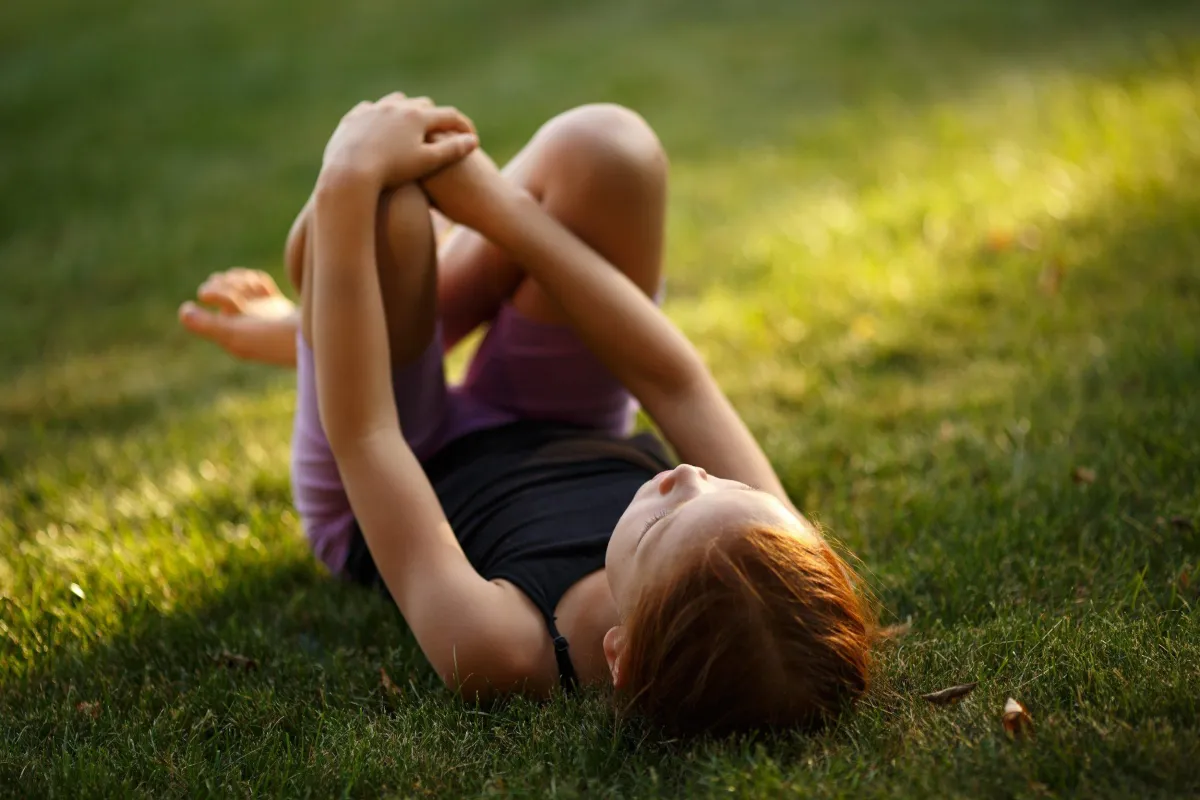
What Is Grounding? The Science-Backed Benefits of Connecting to the Earth
Grounding: The Simplest Healing Tool You're Probably Not Using
By Dr. Caroline Ware, DOM
I’ll be honest — when I first heard about grounding, I dismissed it. I assumed it was just another wellness trend that sounded too simple to make any real difference. But, like many of the most powerful healing tools I’ve discovered, it turns out grounding is not only real — it's remarkably effective.
On a family trip to the mountains of Georgia, I found myself exploring the idea more deeply. Between the river fishing and reminders to keep our shoes on, something clicked. I decided to dig into the research and give grounding a real try.
What I found truly changed how I view this practice — and how I support patients with stress, inflammation, and chronic symptoms.
What Is Grounding?
Grounding (also called earthing) is simply direct physical contact between your body and the earth — without rubber-soled shoes or synthetic barriers.
It can look like:
Standing barefoot on grass
Laying in the dirt or sand
Hugging or leaning against a tree
Wading into a river or ocean
Gardening with bare hands
Even using grounding mats designed to simulate the earth’s electrical field
The goal? To reconnect with the earth’s negative electrons, which can neutralize the positively charged free radicals that build up in our bodies.
How Does Grounding Work?
The earth carries a subtle, negative electrical charge. Your body, on the other hand, accumulates positively charged free radicals — a natural byproduct of inflammation, toxins, stress, and electromagnetic exposure.
By physically connecting with the ground, your body absorbs free electrons from the earth, acting like a giant antioxidant. These electrons help:
Neutralize oxidative stress
Reduce inflammation
Balance your body’s electrical state
Think of it as plugging your nervous system back into its natural power source — your own biological reboot.
Is Grounding Backed by Science?
Yes. While the idea may sound "woo-woo" to some, published research has shown impressive results in multiple areas of health. A growing body of studies shows that grounding can help:
Improve sleep and circadian rhythm
Subjects experienced better sleep and fewer nighttime disturbances after sleeping grounded (Ghaly & Teplitz, 2004)Lower stress and regulate cortisol levels
Participants had normalized cortisol patterns and reported lower stress levels after 8 weeks of daily grounding (Chevalier et al., 2011)Reduce chronic pain and inflammation
Grounding reduced inflammatory markers like white blood cell count and improved blood flow (Chevalier et al., 2015)Support heart health and blood pressure regulation
Some studies suggest that grounding may reduce blood viscosity, improving circulation and reducing hypertension riskImprove recovery and energy
Athletes experienced faster recovery and less soreness after grounding during intense physical activity
How Long Do You Need to Ground?
Even brief moments can make a difference.
Studies have shown benefits from:
20–40 minutes a day barefoot in grass or sand
Overnight grounding mats while sleeping
Short bursts — such as hugging a tree or standing in a river
Consistency is more important than duration. Whether you ground for 5 minutes or 50, doing it daily is key.
My Personal Grounding Experiment
After 10 days of grounding in Georgia:
My kids were calmer, napped longer, and had fewer emotional outbursts
I woke up feeling more rested, even with less sleep
I felt less reactive, more centered, and just… better
Now that we’re back home in our regular routine, we’ve kept the tradition going: barefoot in the grass, winding down under the moon.
Try It Yourself
Here’s a simple challenge:
Take your shoes off. Stand in your yard. Walk in the grass. Feel the earth.
Do this for 10 minutes a day for a week, and see how you feel.
If your nervous system feels fried, if stress is getting the best of you, or if you’ve tried “everything” with little relief — don’t underestimate the healing potential of returning to something as basic as the earth beneath your feet.
Final Thoughts
In holistic medicine, we often find that the simplest, most overlooked practices can be the most profound. Grounding is free, accessible, and deeply healing — especially in today’s high-tech, overstimulated world.
If you're dealing with chronic symptoms like anxiety, fatigue, pain, or even insomnia, grounding could be the missing piece in your healing puzzle.
Ready to Reconnect?
If grounding resonates with you and you’d like more natural tools to reduce stress, detox your body, and restore balance — schedule a free 15-minute discovery consult. I’d love to help you explore root-cause healing.

